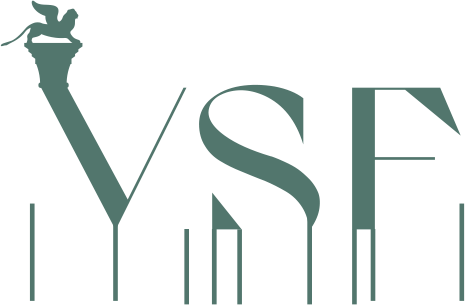The Venice Sustainability Foundation (VSF) is in its second anniversary of activity. Established under the patronage of the Italian government on March 14, 2022, VSF is composed of 46 members (13 founders and 33 co-founders), including the Veneto Region, the Municipality of Venice, institutions, universities, think tanks, research centers and companies of national and international importance, all interested in making Venice an an international laboratory of reference for sustainability.
Numerous activities were launched in these two years, some of which possess the characteristics to become game changers in the sustainable development of the Venetian territory.
Such as “Venice City Campus,” a program for expanding education, research and innovation, for attracting human capital, but also for urban regeneration and new residency. Strongly supported by the Municipality of Venice and with the involvement of the Foundation’s academic partners, it has the ambition to trigger a process of sustainable revitalization of the city, consolidating in 10 years an urban knowledge cluster in the Venice of land and water. The first nucleus of this initiative, has been the launching of the “Water Cluster,” thanks to an agreement between Iuav University and the Navy, with, initially, three new interdisciplinary degree courses, to enhance for teaching and research purposes the Arsenale spaces.
On the subject of hydrogen, a topic of great current interest for the significance it can assume in national decarbonization strategies, the Foundation has initiated a reflection on the development of a Veneto hub in Porto Marghera as one of the possible keys for its productive revitalization. Together with the Veneto Region and BCG, the first “Mapping of actors in the Veneto hydrogen supply chain” was jointly produced. The study explored the economic opportunities for decarbonization of Veneto companies through this energy carrier and highlighted the industrial skills currently available, the economic and technological barriers to the sector’s development, and the projects underway to understand how Veneto can benefit from developing the hydrogen economy to pursue its clean strategies and create a hub of international interest. The hydrogen economy will be the focus of the “Venice Hydrogen Forum” that the Foundation is organizing in October 2024, in collaboration with the Green Hydrogen Organization.
Many meeting initiatives between VSF stakeholders in the field of energy and ecological transition, which have led to the identification of different perspectives in favor of the metropolitan area, including: the “Malcontenta Park” initiative (part of the broader “Parco Italia” project, for the renaturalization of urban and suburban areas through the planting of green spaces); the mapping of the potential for the development of Renewable Energy Communities (RECs) in the municipal area; and the proposed study of the environmental impacts of watercraft in the lagoon, aimed at identifying the best alternative propellants (e.g., biofuel, e-fuel) on different types of boats.
VSF, in recent months, has initiated together with the partners and other sector operators a discussion table on sustainable tourism, stimulating reflection on how this issue affects local livability, residentiality and social inclusion in order to identify possible integrated approaches that allow to recreate on a stable form that experience of urban fruition – residential, occupational, touristic – that for centuries made Venice a place without equal.
In addition, together with Ca’ Foscari University, opportunities were created for the promotion of the Venisia sustainable business accelerator, within and outside the VSF partnership.
In parallel, VSF has initiated a series of multidisciplinary and “transversal” projects, such as the elaboration of an “Urban Sustainability Scenario-Objective,” a strategic initiative for defining a sort of compass and direction towards which to aim in order to realize a new sustainable socio-economic model for Venice and its metropolitan surroundings. This is joined by the creation of an index of integrated urban sustainability – functional to create an Observatory to monitor the state of sustainability of the metropolitan system, and the effects resulting from the actions of the Foundation itself – and a reasoned collection of historical experiences of resilience and modernization of the city of Venice.
Another transversal initiative is the implementation, together with the Department of Economics of Ca’ Foscari University and the spin-off KnowShape, of an operational protocol of “Sustainable Finance,” a modern approach to attract investments via sustainable financial instruments, in accordance with the new European regulatory requirements on new ESG sustainability projects, in line with the carrying capacity of the Venetian territory. VSF’s action is expressed as an accompanying service to interested parties in order to help them meet eligibility for the adoption of these instruments by adhering not only to the indicators established by the European taxonomy, but also to the additional commitment of investing in activities that have a direct impact on the Venetian socio-economic system. Several actors, four of them part of the VSF partnership, are exploring this perspective together with the Foundation’s working group.
Finally, with the organization of the first Sustainability Biennial, VSF set itself as a point of reference for international comparison of best practices in urban sustainability. The 2023 edition was dedicated to the coming into operation of the MOSE system (hence titled “The MOSE Era”), a set of works demonstrating the concrete possibility of defending Venice from the rising sea median (and on which it was published, in collaboration with Fortune Italia the monograph “MOSE: Italian ingenuity”). It featured a series of insights into the different aspects of safeguarding, involving a wide audience of local, national and international experts. Five conferences were organized, plus an exhibition entitled “Venice and Science: two centuries of sustainability,” in collaboration with the Istituto Veneto di Scienze, Lettere ed Arti, which attracted 3,500 visitors. Finally, seven side events were promoted, all united by the common thread of safeguarding against climate change and sustainability.
Thanks also to the collaboration with the entire network of members, a strong impetus was given to the discussion that highlighted Venice’s central role as an international hub where best practices in urban sustainability could be shared, discussing them with people who, in other geographies, are facing the same challenges.
The ability of the Foundation and its members to converge on Venice expertise for projects of international interest and to act as a facilitating entity for the achievement of shared goals for the territory, emerged on several occasions. Notable among these, is the recognition received from the United Nations, which granted the Veneto capital city the status of resilience hub in the global partnership “Making Cities Resilient 2030” of the UNDRR – United Nations Office for Disaster Risk Reduction.
Following this, VSF was brought in to represent the city of Venice during major international events, such as COP28, the IX European Congress of Local Authorities and the Buildings and Climate Global Forum organized by UNEP (UN Environment Program).



